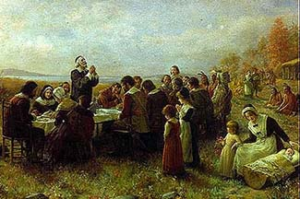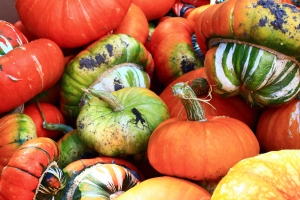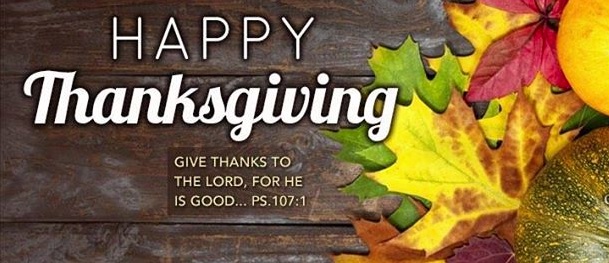Thankful Characters-A Reprise
 As Thanksgiving Day approaches here in the US, I’m mindful of the basis of our holiday. Primarily it was instituted in various colonial settlements in the 1600s as a day to remember the ways in which God provided. Secondarily, it was (or they were, since there was no one set date in those early years) a day to be thankful, a day of celebration for the harvest.
As Thanksgiving Day approaches here in the US, I’m mindful of the basis of our holiday. Primarily it was instituted in various colonial settlements in the 1600s as a day to remember the ways in which God provided. Secondarily, it was (or they were, since there was no one set date in those early years) a day to be thankful, a day of celebration for the harvest.
In 1621 in the settlement at Plymouth, 58 colonists hosted 90 members of the Wampanoag tribe because, by teaching them food-growing and gathering skills and by donating food supplies for the winter, these native Americans were instrumental in helping the colony survive. Consequently, many see Thanksgiving as a day to express gratitude to significant friends, family, and neighbors.
The thing that impresses me about these early celebrations is the fact that they took place even though the overall picture of these colonies was quite bleak. Many people died because of disease. Supplies through the winter were meager at best, and more people died of starvation. In addition, an attack by the Powhatan Confederacy in 1622 wiped out a number of smaller settlements and killed twenty-five percent of the Jamestown population.
 Nevertheless, the colonists, in what would later become the Commonwealth of Virginia, held any number of Thanksgiving observances. Yes, despite privation, death, dangers, and the concerns for the future, they found reason to rejoice. They exhibited a degree of contentment, a gratitude for what they had rather than resentment for what they had lost.
Nevertheless, the colonists, in what would later become the Commonwealth of Virginia, held any number of Thanksgiving observances. Yes, despite privation, death, dangers, and the concerns for the future, they found reason to rejoice. They exhibited a degree of contentment, a gratitude for what they had rather than resentment for what they had lost.
When I think of stories, however, no matter what the genre, I think of a main character who is not content. He is missing something he wants, something he needs, in order to fix a problem that has cropped up in his world. Consequently, I don’t often think of fictitious characters as being content or thankful.
Until I considered minor characters. Those who are a part of the story but who are not the central figures, may indeed exhibit thankful hearts.
Think, for example, of Gimli, the dwarf in The Fellowship of the Ring who was one of the company traveling with Frodo Baggins. He stands out in contrast to the stereotype of dwarfs as greedy and disgruntled.
First he was grateful for the opportunity of traveling into the mines of Moria and learning what happened to his kin who had sought to reestablish a community there. Second, he was ever afterward thankful for having met Galadriel, the elfin queen of Lothlórien. Later he expressed sincere happiness as a result of his friendship with Legolas.
Sam Gamgee is another Tolkien character who is a good example of one who is grateful. In the Shire he was thankful to be Mr. Frodo’s gardener. On the way to Rivendell, he was content to see elves, and could have died happy after that first encounter. Most of all, however, he was satisfied to walk into danger beside Frodo, to carry his burden, and in the end, to carry his friend, no matter how bleak the circumstances.
In the third volume of The Chronicles of Narnia, C.S. Lewis also created a notable character who demonstrated gratefulness: Reepicheep. He was happy to be a Talking Mouse, and became content even without his tail. Mostly he was content with his lot—being the one who would go on a quest to the end of the world, though it meant he would leave all he loved.
 In the Harry Potter series, J. K. Rowling created perhaps the best grateful character of all: the house elf, Dobby. In Harry Potter and the Chamber of Secrets, Harry Potter ends up freeing Dobby from his servitude to the Malfoy family. From that point on, Dobby is so grateful to Harry Potter that he will do whatever he can to help or protect Harry Potter, even put his own life at risk.
In the Harry Potter series, J. K. Rowling created perhaps the best grateful character of all: the house elf, Dobby. In Harry Potter and the Chamber of Secrets, Harry Potter ends up freeing Dobby from his servitude to the Malfoy family. From that point on, Dobby is so grateful to Harry Potter that he will do whatever he can to help or protect Harry Potter, even put his own life at risk.
What are some other notable characters who exhibit thankfulness? What do you think fuels these characters to be so grateful, even when their outer circumstances may not seem to warrant that attitude? For writers, do you have a grateful character in your story? For what is he or she so thankful and why? In the end, how do we as real people stack up against Reepicheep or Sam Gamgee or Dobby? Is it possible to be as sold-out grateful as these characters were?
Excluding some minor editorial changes, this article first appeared at SpecFaith in November 2013.






























Share your fantastical thoughts.